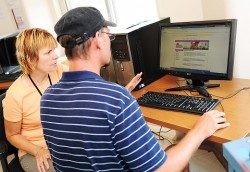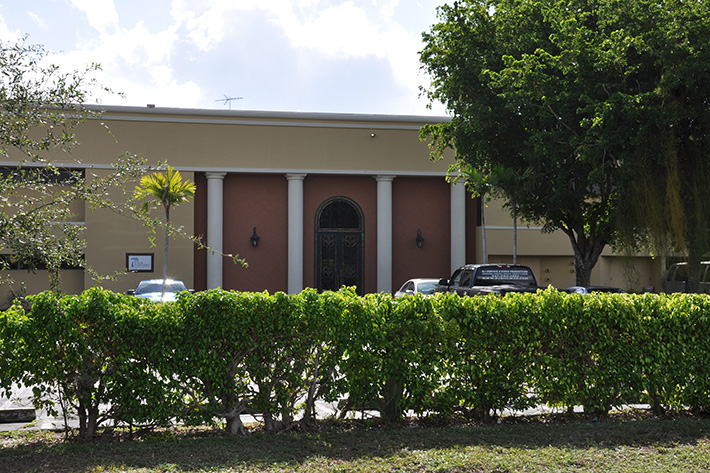Vocational Training and other Useful Services at Drug Rehab
People recovering from chronic addiction problems often have to start from square one, rebuilding their lives along the way. While ongoing abstinence remains the overall goal of drug rehab, enabling recovering addicts to take part in the affairs of everyday life naturally figures into maintaining a drug-free lifestyle. Likewise, the effects of chronic drug abuse may well impair a person’s ability to hold down a job for any length of time.
For these reasons, drug rehab programs provide vocational training and other services to give those in recovery the best chance at ongoing abstinence from drug use. Vocational training encompasses a range of services, not all of which have to do with job training per se. As it’s equally important to equip a person with the necessary life skills for getting and keeping a job, drug rehab programs offer other useful services as well.
The Purpose of Drug Rehab
Chronic drug use can have widespread effects on a person’s overall functional capacity, impairing him or her on multiple levels. The presence of physical, psychological or social-based problems can greatly compromise a person’s treatment progress.
According to the National Center for Biotechnology Information, these same issues come into play when helping addicts rebuild their lives, especially when it comes to finding and maintaining gainful employment. Drug rehabs take these issues into consideration when determining the best course of treatment for each person.
Vocational Rehabilitation Counseling
Vocational rehabilitation counseling takes a step-by-step approach to preparing those in recovery for the workforce. Counselors provide information on the job market as well as on the skillset needed to hold down a job based on each person’s values, interests and goals.
Interventions used address the types of challenges addicts face in recovery, including:
- Developing basic problem solving skills
- Developing skills for coping with job-related stress and pressure
- Motivational techniques for sustaining engagement in the process
- Helping a person access educational and skills training resources
Vocational Planning

Vocational training is often offered in drug rehab.
Screening
Vocational screening entails gathering information on a person’s work history and overall ability to function effectively in the workforce. Screening typically takes place at the start of drug rehab, usually during the initial intake process with periodic assessments conducted throughout the course of treatment.
The screening stage also identifies a person’s psychological competency in terms of his or her willingness and readiness to hold down a job. As chronic drug use can wreak havoc on a person’s attitudes and emotions, this aspect of the screening process becomes especially important during the treatment planning stage.
Assessment
The assessment process offers a more in-depth look at a person’s work history and capabilities. While some in recovery may progress onto the job search stage after the screening stage, many will require a more comprehensive assessment to identify specific limitations and functional capabilities.
Information gathered during the assessment process includes:
- Sociocultural factors affecting a person’s mindset
- Environmental conditions that may impede a person’s efforts
- Any physical limitations that may impede a person’s progress
- Any psychological disorders
In effect, the assessment process works to develop a more holistic treatment approach in cases where recovering addicts struggle with multiple life issues, according to the Substance Abuse & Mental Health Services Administration.
Case Management Services
After completing the screening and assessment stages, case management services may be provided as a means for helping recovering addicts meet treatment plan objectives. According to the Executive Office of Health & Human Services, case management services encompass a range of interventions, some of which include:
- Accessing community services, such as transportation and food/housing assistance
- Coordinating treatment services
- Counseling
- Helping addicts develop community contacts, such as support group meetings
Supportive Services
More than anything else, a person’s ability to maintain ongoing abstinence greatly increases the likelihood of finding and keeping a job. In this respect, drug rehab programs provide a range of interventions designed to support a person’s ongoing success in recovery, including:
- Individualized treatment planning
- Individual therapy
- Group therapies
- Life Skills training
Individualized Treatment Planning
The treatment planning process incorporates information gathered during the initial screening and assessment process to devise a plan that best meets a person’s treatment needs. Individualized treatment planning works to ensure the course of treatment offered specifically addresses the challenges a person faces while implementing the types of interventions that help him or her overcome these obstacles and reach stated plan objectives and goals.
Individual Therapy
For many addicts, chronic drug abuse becomes a way of coping with difficult life issues. Oftentimes, underlying emotional and/or psychological problems lie at the center of a person’s inability to cope without drugs.
Drug rehab programs provide individual therapy services as a means for helping addicts get to the root of the addiction problem. During the course of therapy, a person comes to uncover and work through the negative belief systems and destructive behaviors that drive chronic drug abuse practices.
Group Therapies
Whereas individual therapy helps addicts work through personal issues, group therapies provide a forum where they can develop healthy interpersonal skills and coping behaviors.
Both individual and group therapies play important roles in helping prepare a person for the responsibilities and pressures that come with holding down a job. Therapy groups also provide a supportive environment where a person can gain valuable insights on how to deal with the day-in, day-out challenges that recovery brings.
Life Skills Training
In effect, drug addiction breeds its own lifestyle made up of habits and behaviors that only work to support ongoing drug use. These tendencies can persist long after a person stops using drugs, which makes it all but impossible to maintain gainful employment.
For these reasons, drug rehab programs offer practical life skills training, which include:
- Anger management training
- Stress reduction strategies
- Communication techniques
- Coping strategies
Considerations
Addiction’s aftereffects on the mind work in much the same way as a chronic disease, leaving those in recovery prone to relapse for years to come. According to the National Institute on Drug Abuse, anywhere from 40 to 60 percent of people in recovery relapse after completing drug treatment.
This means, it’s essential for a person to remain engaged in the treatment process on an ongoing basis. While finding and keeping a job is a sign a great progress, ensuring ongoing success in recovery means minimizing the potential for relapse on an ongoing basis.

 How to Find the Best Opiate Addiction Treatment -
Opiate rehab can help you overcome an addiction to opiates, but it's important to choose a good program. Evidence-based methods and an individual approach are essential.
How to Find the Best Opiate Addiction Treatment -
Opiate rehab can help you overcome an addiction to opiates, but it's important to choose a good program. Evidence-based methods and an individual approach are essential.  Will Methadone Treatment Still Work If I’ve Relapsed in the Past? -
Relapse is extremely common among recovering opiate addicts, and using methadone alone is often not enough to prevent it.
Will Methadone Treatment Still Work If I’ve Relapsed in the Past? -
Relapse is extremely common among recovering opiate addicts, and using methadone alone is often not enough to prevent it.  If I Make It Through Opium Detox Withdrawal Is My Addiction Problem Cured? -
Detox works to rid the body of its physical dependence on opium and is only the first step in the addiction recovery process.
If I Make It Through Opium Detox Withdrawal Is My Addiction Problem Cured? -
Detox works to rid the body of its physical dependence on opium and is only the first step in the addiction recovery process.  How Can I Save My Relationship if I’m in Opium Addiction Treatment? -
Involving your partner in the recovery process will keep the two of you on the same page.
How Can I Save My Relationship if I’m in Opium Addiction Treatment? -
Involving your partner in the recovery process will keep the two of you on the same page.  Benefits of Local Opium Rehab -
When learning about opium rehab, it is important to decide between inpatient and outpatient care, find a strong support system, and consider the costs.
Benefits of Local Opium Rehab -
When learning about opium rehab, it is important to decide between inpatient and outpatient care, find a strong support system, and consider the costs.